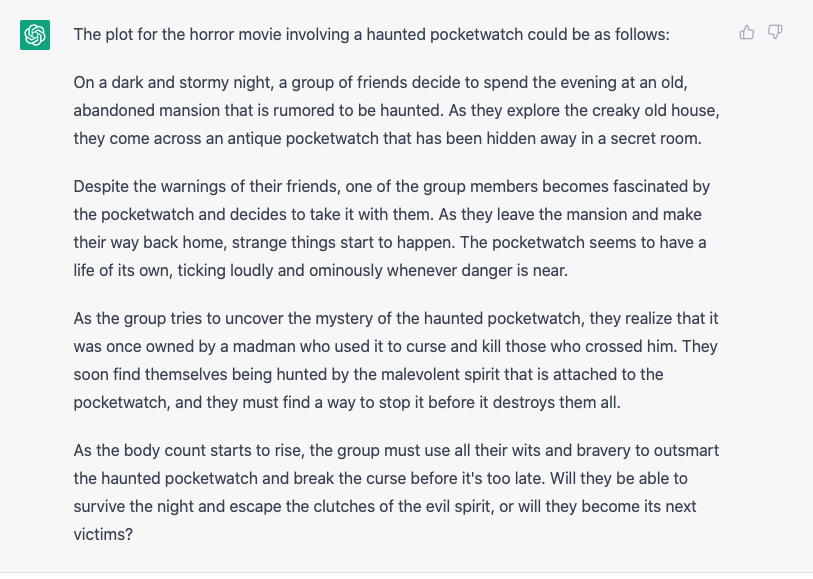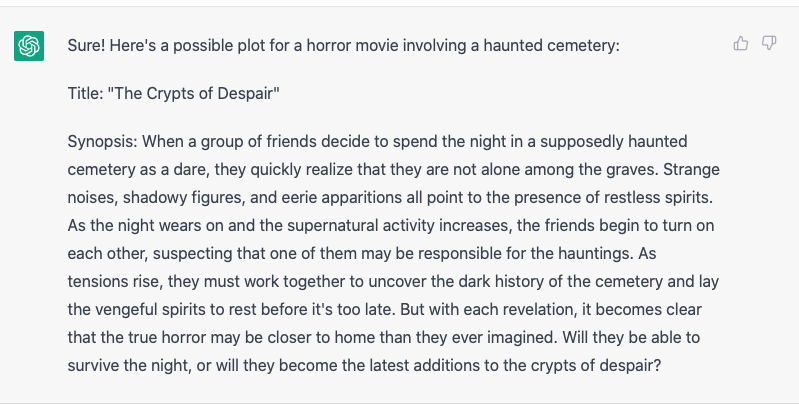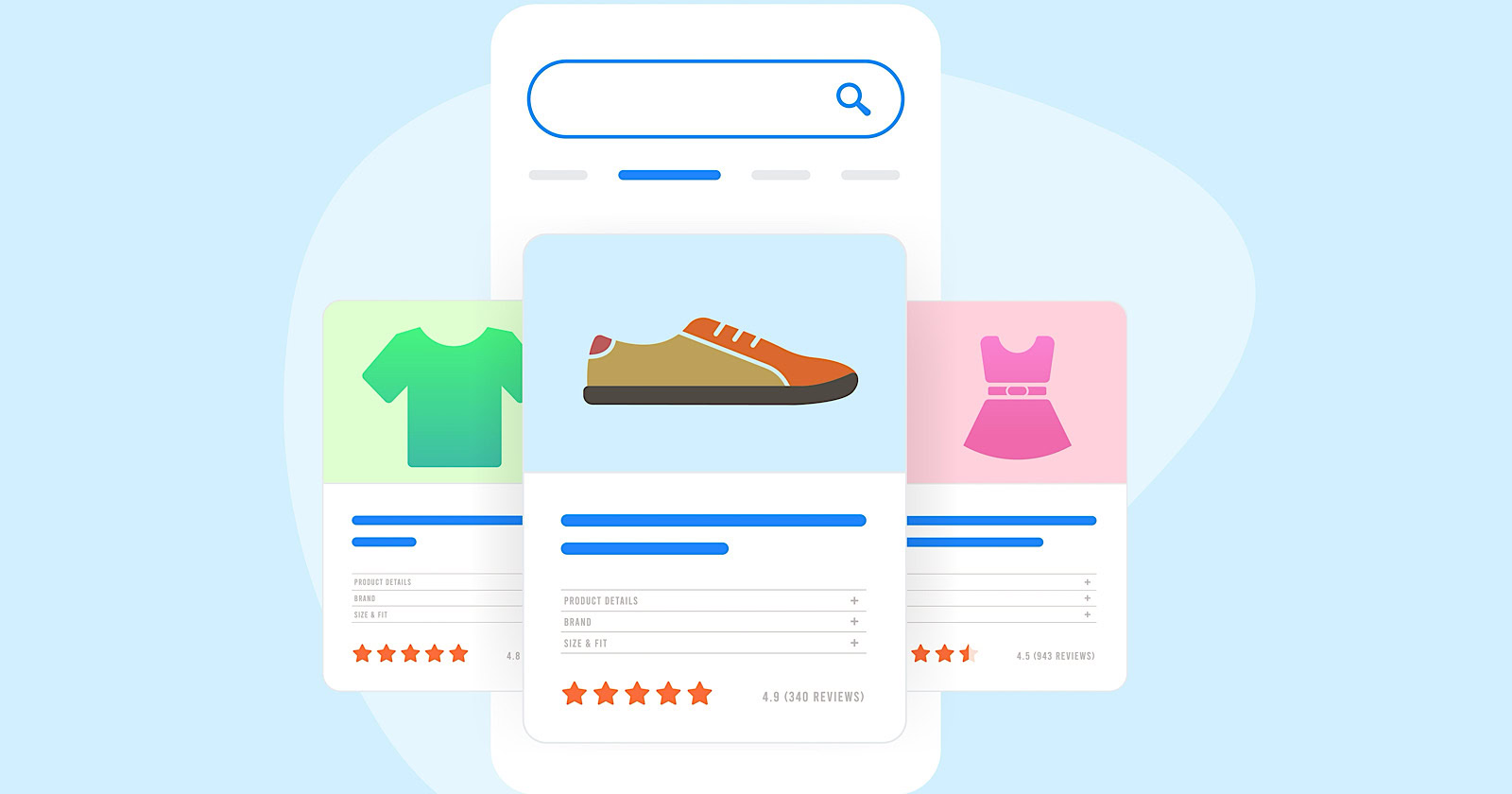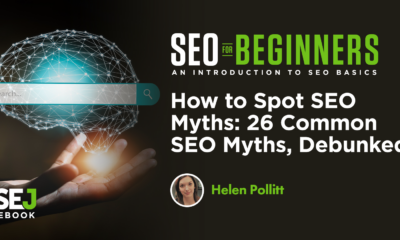SEO
Will ChatGPT Take Your Job?

ChatGPT has all the signs of being a technological game-changer. But will ChatGPT take your job?
A chatbot powered by machine learning and vast amounts of data, it interacts with users in an incredibly realistic way.
But this OpenAI-created model does much more than just carry on virtual conversations. It can generate content like poems or term papers, debug code, answer queries, and more.
This is an exciting development. But on a personal level, it’s more than a little worrying – particularly regarding its impact on job security.
If technology reaches a level where it can perform your job as well or better than you can, what are you going to do for a living?
Most people have spent their entire careers working in one field. Are they all supposed to become carpenters or massage therapists? And if so, won’t the competition for those roles be intense? How will we survive?
The thought alone is enough to induce a full-on panic attack.
But relax. Breathe into a paper bag if you need to.
Things are not as desperate as all that.
You’re going to be fine. Airplanes have a complex system of autopilot and, during a flight, are controlled mostly by computers, but pilots are there sitting and tuning the computer’s controls whenever needed.
Yes, on a long enough timescale, technology will eventually assume your current role. However, this is unlikely to happen anytime soon.
Machine learning and artificial intelligence are still in their infancy, and you’ll (hopefully) be long since retired before the machines come for your job.
And before that happens, the power of tools like ChatGPT will allow you to perform your role with much greater efficiency and effectiveness.
In this piece, we’ll take a look at some of the jobs most likely to be impacted by ChatGPT and rate their security on a scale of 1-10, with one meaning no chance of replacement by machines and ten meaning polish up your resume, because you’re about to get your walking papers.
Is Your Job Safe From ChatGPT?
Search Engine Optimization Professionals
Considering this is Search Engine Journal, our very first area of concern is about the future of SEO jobs.
There is no question ChatGPT and similar programs will change how SEO professionals work. But this is search engine optimization – change is the only constant.
And it’s already being employed by some professionals in the industry. From keyword research and strategy to content creation and reporting, ChatGPT shows great potential. But that doesn’t mean it’s coming for your job.
For one thing, no matter how powerful AI-powered programs become, they’ll never be human, which means they’ll never have our creative ability or mental quirks (although ChatGPT is producing some impressive creative work). Current AI systems need both guided training from humans and human input to train on, which limits their knowledge of current and recent events and makes work produced by humans a core part of how they function. It also needs human fact-checkers.
And let’s not forget that now, Google considers AI-generated content to be against its guidelines. Although, the use of anti-AI-detection algorithms isn’t fail-safe.
Most businesses serious enough to employ an SEO professional (which should be all of them) shouldn’t be willing to risk the negative impact of getting flagged as spam.
Machine-driven SEO will also struggle to reconcile conflicting information and determine what is accurate.
For the foreseeable future, it seems there will be a need for humans to oversee any AI-driven SEO efforts, offering creative input, providing strategic direction, and making adjustments based on shifting search tides.
- Risk of replacement: 2/10.
Programmers
Programming is a common and often lucrative career path.
But one of the key features that keep coming up in discussions about ChatGPT is its ability to write code. Imagine it – code writing new code, never forgetting a decimal or closing bracket. It sounds like a home run.
Additionally, ChatGPT has shown an ability to pass certification exams, which could raise the bar for entry-level jobs and make it harder for junior developers to find positions.
OpenAI ChatGPT is now an AWS Certified Cloud Practitioner!
This is crazy🤯
It attempted 20 questions of my AWS Certified Cloud Practitioner practice exams.
The results are bluffing!!!
Final score: 800/1000; a pass is 720 pic.twitter.com/G7ECxIwC8j
— Stephane Maarek 👨🏫 (@StephaneMaarek) December 8, 2022
There’s just one little problem: the OpenAI chatbot is still far from being able to write complex code. Sure, it can manage “Hello, World!” in HTML, but according to industry experts, figuring out more difficult applications is still quite a ways off.
There’s also the fact that Stack Overflow banned ChatGPT after it was used to answer questions — incorrectly.
That’s not to say it won’t impact the work programmers are doing.
As the chatbot and others like it learns and improves, they’ll increasingly take over the need for creating boilerplate code like generic functions, performing quality assessments, and debugging existing code. This, in turn, will free human developers up to focus on more complicated architecture.
In addition to streamlining coding and reducing waste, AI coders could also give rise to new jobs in the field, including code prompt executers and developer advocates (go-betweens between technical workers and non-techies).
And all this additional programming power will likely give rise to new programming jobs no one has even thought of yet.
If we’ve learned one thing from Moore’s Law, it’s that the growth of technology is exponential. And for every career door that closes, multiple new ones will open.
Keep an open mind and keep learning.
- Risk of replacement: 4/10.
Pay-Per-Click Specialists
In general, PPC specialists don’t seem to be nearly as concerned with the impact of ChatGPT and other AI technologies on their job security. If you were to hazard a guess as to why it could be because they’ve already made peace with it.
If you’ve ever set up a PPC campaign, you’ve used the power of artificial intelligence, or something very similar to it, at least. Automated Rules could be viewed as a rudimentary type of AI, where you create rules for common use cases.
Using several of these rules together in a process known as automation layering, is an important step to ensuring your PPC account doesn’t drain itself in the face of a bug or other unusual event.
The possibilities ChatGPT offers to the field of PPC are just a continuation of this same philosophy. AI will automate the bidding process based on statistical learning methods driven by real-time information. It will likely also take much of the manual work out of campaign management.
And just like with SEO, it seems extremely unlikely that ChatGPT or any of its competitors will take human workers out of the equation soon. In addition to the creative aspect, human PPC specialists perform one task no program currently can: Steering the ship.
Humans understand their customers, brand, and values. And this means, for the foreseeable future, a person will need to chart a logical course for every business.
Likewise, a human will be required to teach AI which decisions it should be making, as well as diagnose what went wrong when things get off track.
Read this for a thorough analysis of AI and PPC.
- Risk of replacement: 2/10.
Writers
As you can probably imagine, this is one area of particular personal concern. What are people like me, who depend on creating the written word going to do when ChatGPT and the like can come up with a better, snappier, more effective headline in less time?
This wasn’t much of a concern when computers were spitting out incomprehensible dialogue, ala “Sunspring,” the 2016 short film written entirely by AI. And then we got ChatGPT.
A query for the plot of a horror film about a haunted pocketwatch returned an incredibly coherent (and interesting) synopsis. This means even creative writing work could be at risk.
 Screenshot from ChatGPT, January 2023
Screenshot from ChatGPT, January 2023Until you run a second query for a horror film about a haunted cemetery. Which prompts ChatGPT to give you a similar synopsis with slightly different plot points.
 Screenshot from ChatGPT, January 2023
Screenshot from ChatGPT, January 2023Is it different enough to pass copyright laws? Yes. But that’s not to say it’s not formulaic and uninspired.
So, creativity does provide some sort of shield for writers (for now), but what about non-creative writing, journalism, whitepapers, etc.? Surely ChatGPT is a worry in those fields, considering it has become convincing enough to inspire concerns about academic cheating?
At the moment, the way AI systems are trained means they don’t have access to the latest events, which makes them unsuitable for breaking news and new developments.
Furthermore, using AI to build the connection and empathy of copy written by a living person might be quite difficult, especially in journalism and creative work where voice, nuance, emotion, and style matter.
There are several more routine writing tasks that AI can do very effectively, such as creating product descriptions, ad copy, video synopses, and other time-consuming and repetitive jobs.
While it does seem likely that automated intelligence will subsume some of the roles of professional writers, the day it will replace them entirely is far off. And even then, humans’ desire to create will still likely keep writing a popular activity.
- Risk of replacement: 4/10.
Sales Professionals
There is no question that big data and AI can be used to revolutionize the sales process. From more accurate targeting to behavior prediction, there is little question it can be used to make sales easier and more efficient.
You’ve probably already seen the effect in your own life as retailers collect and analyze your buying habits to make predictions. Those store reward cards and discount key fobs exist for just one reason: to collect your data for analysis.
It’s been going on for quite some time now, too. Way back in 2012, Target data-mining identified a teen girl’s pregnancy before her father even knew about it. And it has only gotten better since then.
Surely, this means the sales occupation is headed out the door, right? Not even close.
Legislators, especially those in Europe, are coming down hard on many of the biggest tech companies that use algorithms and AI with laws focused on privacy and consumer protection. Google is reducing user tracking; third-party cookies are going away. The technological leaps forward in AI may be limited in their application in sales and marketing for a long time.
Plus, ask any salesperson worth their salt about the most important thing to closing deals, and nine out of ten of them will tell you the same thing: Trust. And trust begins with personal relationships, something even the most convincing AI may never be able to replicate.
Of course, that’s not to say there will be no use for ChatGPT and the like in sales. Most sales departments already use a CRM tool to help them go after hot prospects and automate marketing. And chatbots embedded in websites have made information collection easier than ever.
Like virtually every other field discussed, ChatGPT promises to reshape the face of the sales process and automate administrative work, but it will never replace actual human interaction.
- Risk of replacement: 1/10.
Educators
If people were cold, uncaring machines, there would be no better way to educate them than by rote input. But humans are not computers, and education is about much more than transferring knowledge.
And no amount of programming, algorithm tweaking, and data processing can ever replace human intangibles like patience, discipline skills, friendliness, and genuine concern for students’ well-being.
Much like with sales, regardless of the advances in technology, it seems inconceivable that ChatGPT or another AI tool will ever be able to replace human educators.
But again, this is not to say it won’t change how things are done. From grading to progress tracking, developing personalized learning plans to improving accessibility, there are many opportunities to use this exciting new technology in the field.
- Risk of Replacement: 1/10
Attorneys
At first glance, the law seems like one field where AI is sure to make big strides. What is the law, after all, besides a codified set of instructions?
Why couldn’t ChatGPT be used to analyze legal documents, decisions, and precedents, then apply that knowledge to real-world cases?
There’s the human factor to consider.
One of the main arguments against mandatory minimum sentences in criminal trials is that every situation is unique.
This is no less true for civil trials, divorce proceedings, bankruptcy, or other legal issues. And because the legal field deals with people, not absolutes, there will always be possibilities that even the deepest AI cannot account for.
Due to the way ChatGPT was trained, basing a legal argument on its research alone wouldn’t consider at least last 12 months of cases and decisions. That could be catastrophic in some situations. Add to that its tendency to sometimes just get things wrong, and the tool might become more trouble than its worth in a legal profession.
While ChatGPT-like technology could prove beneficial to the legal field in roles like research and scholarship, automated contracts and forms, and even accelerating the judicial process, machines are not capable of rendering judgments.
Nor are they guaranteed to be free from biases, which at first glance seems to be their primary advantage over humans. Depending on how they were trained, ChatGPT and other chatbots are susceptible to dataset bias and less than 100% accuracy.
And this means the role of the judge, not to mention the power of a passionate and skilled attorney to sway opinions, is in no danger of replacement by computers.
- Risk of replacement: 1/10.
AI Isn’t Coming For These Jobs Yet
ChatGPT and other programs employing machine learning and big data in pursuing artificial intelligence can be wonderful tools. They show great promise in reducing or even eliminating a lot of the mundane day-to-day tasks you have to perform.
And we have already embraced this technology in other aspects of our lives – simply look at the popularity of Alexa and Siri or any of the brands of robot vacuums thousands of people readily adopted into their lives.
Why shouldn’t we hope that smarter machines will make our work lives easier as well? Because they will.
With that said, some industries are more likely to be replaced by machines in the next few years or decades. These include positions like receptionist, many customer service jobs, driving jobs including taxi drivers and truckers, and soldiers.
There are also rightful concerns about how AI tools like ChatGPT can be used by unscrupulous individuals or companies. From students cheating in college to fake scientific abstracts, whether AI tools cause damage depends a lot on how we use them. Some employers may be quicker to try and cut costs with AI than others. But it’s likely to also see resistance due to accuracy, ethics, and political issues.
One thing is certain – for every position they replace, they will pay for it in other ways, creating new opportunities and industries as they go.
Don’t fear what ChatGPT could mean for your career just yet.
More resources:
Featured Image: Sergey Nivens/Shutterstock
SEO
Google Cautions On Blocking GoogleOther Bot

Google’s Gary Illyes answered a question about the non-search features that the GoogleOther crawler supports, then added a caution about the consequences of blocking GoogleOther.
What Is GoogleOther?
GoogleOther is a generic crawler created by Google for the various purposes that fall outside of those of bots that specialize for Search, Ads, Video, Images, News, Desktop and Mobile. It can be used by internal teams at Google for research and development in relation to various products.
The official description of GoogleOther is:
“GoogleOther is the generic crawler that may be used by various product teams for fetching publicly accessible content from sites. For example, it may be used for one-off crawls for internal research and development.”
Something that may be surprising is that there are actually three kinds of GoogleOther crawlers.
Three Kinds Of GoogleOther Crawlers
- GoogleOther
Generic crawler for public URLs - GoogleOther-Image
Optimized to crawl public image URLs - GoogleOther-Video
Optimized to crawl public video URLs
All three GoogleOther crawlers can be used for research and development purposes. That’s just one purpose that Google publicly acknowledges that all three versions of GoogleOther could be used for.
What Non-Search Features Does GoogleOther Support?
Google doesn’t say what specific non-search features GoogleOther supports, probably because it doesn’t really “support” a specific feature. It exists for research and development crawling which could be in support of a new product or an improvement in a current product, it’s a highly open and generic purpose.
This is the question asked that Gary narrated:
“What non-search features does GoogleOther crawling support?”
Gary Illyes answered:
“This is a very topical question, and I think it is a very good question. Besides what’s in the public I don’t have more to share.
GoogleOther is the generic crawler that may be used by various product teams for fetching publicly accessible content from sites. For example, it may be used for one-off crawls for internal research and development.
Historically Googlebot was used for this, but that kind of makes things murky and less transparent, so we launched GoogleOther so you have better controls over what your site is crawled for.
That said GoogleOther is not tied to a single product, so opting out of GoogleOther crawling might affect a wide range of things across the Google universe; alas, not Search, search is only Googlebot.”
It Might Affect A Wide Range Of Things
Gary is clear that blocking GoogleOther wouldn’t have an affect on Google Search because Googlebot is the crawler used for indexing content. So if blocking any of the three versions of GoogleOther is something a site owner wants to do, then it should be okay to do that without a negative effect on search rankings.
But Gary also cautioned about the outcome that blocking GoogleOther, saying that it would have an effect on other products and services across Google. He didn’t state which other products it could affect nor did he elaborate on the pros or cons of blocking GoogleOther.
Pros And Cons Of Blocking GoogleOther
Whether or not to block GoogleOther doesn’t necessarily have a straightforward answer. There are several considerations to whether doing that makes sense.
Pros
Inclusion in research for a future Google product that’s related to search (maps, shopping, images, a new feature in search) could be useful. It might be helpful to have a site included in that kind of research because it might be used for testing something good for a site and be one of the few sites chosen to test a feature that could increase earnings for a site.
Another consideration is that blocking GoogleOther to save on server resources is not necessarily a valid reason because GoogleOther doesn’t seem to crawl so often that it makes a noticeable impact.
If blocking Google from using site content for AI is a concern then blocking GoogleOther will have no impact on that at all. GoogleOther has nothing to do with crawling for Google Gemini apps or Vertex AI, including any future products that will be used for training associated language models. The bot for that specific use case is Google-Extended.
Cons
On the other hand it might not be helpful to allow GoogleOther if it’s being used to test something related to fighting spam and there’s something the site has to hide.
It’s possible that a site owner might not want to participate if GoogleOther comes crawling for market research or for training machine learning models (for internal purposes) that are unrelated to public-facing products like Gemini and Vertex.
Allowing GoogleOther to crawl a site for unknown purposes is like giving Google a blank check to use your site data in any way they see fit outside of training public-facing LLMs or purposes related to named bots like GoogleBot.
Takeaway
Should you block GoogleOther? It’s a coin toss. There are possible potential benefits but in general there isn’t enough information to make an informed decision.
Listen to the Google SEO Office Hours podcast at the 1:30 minute mark:
Featured Image by Shutterstock/Cast Of Thousands
SEO
AI Search Boosts User Satisfaction

A new study finds that despite concerns about AI in online services, users are more satisfied with search engines and social media platforms than before.
The American Customer Satisfaction Index (ACSI) conducted its annual survey of search and social media users, finding that satisfaction has either held steady or improved.
This comes at a time when major tech companies are heavily investing in AI to enhance their services.
Search Engine Satisfaction Holds Strong
Google, Bing, and other search engines have rapidly integrated AI features into their platforms over the past year. While critics have raised concerns about potential negative impacts, the ACSI study suggests users are responding positively.
Google maintains its position as the most satisfying search engine with an ACSI score of 81, up 1% from last year. Users particularly appreciate its AI-powered features.
Interestingly, Bing and Yahoo! have seen notable improvements in user satisfaction, notching 3% gains to reach scores of 77 and 76, respectively. These are their highest ACSI scores in over a decade, likely due to their AI enhancements launched in 2023.
The study hints at the potential of new AI-enabled search functionality to drive further improvements in the customer experience. Bing has seen its market share improve by small but notable margins, rising from 6.35% in the first quarter of 2023 to 7.87% in Q1 2024.
Customer Experience Improvements
The ACSI study shows improvements across nearly all benchmarks of the customer experience for search engines. Notable areas of improvement include:
- Ease of navigation
- Ease of using the site on different devices
- Loading speed performance and reliability
- Variety of services and information
- Freshness of content
These improvements suggest that AI enhancements positively impact various aspects of the search experience.
Social Media Sees Modest Gains
For the third year in a row, user satisfaction with social media platforms is on the rise, increasing 1% to an ACSI score of 74.
TikTok has emerged as the new industry leader among major sites, edging past YouTube with a score of 78. This underscores the platform’s effective use of AI-driven content recommendations.
Meta’s Facebook and Instagram have also seen significant improvements in user satisfaction, showing 3-point gains. While Facebook remains near the bottom of the industry at 69, Instagram’s score of 76 puts it within striking distance of the leaders.
Challenges Remain
Despite improvements, the study highlights ongoing privacy and advertising challenges for search engines and social media platforms. Privacy ratings for search engines remain relatively low but steady at 79, while social media platforms score even lower at 73.
Advertising experiences emerge as a key differentiator between higher- and lower-satisfaction brands, particularly in social media. New ACSI benchmarks reveal user concerns about advertising content’s trustworthiness and personal relevance.
Why This Matters For SEO Professionals
This study provides an independent perspective on how users are responding to the AI push in online services. For SEO professionals, these findings suggest that:
- AI-enhanced search features resonate with users, potentially changing search behavior and expectations.
- The improving satisfaction with alternative search engines like Bing may lead to a more diverse search landscape.
- The continued importance of factors like content freshness and site performance in user satisfaction aligns with long-standing SEO best practices.
As AI becomes more integrated into our online experiences, SEO strategies may need to adapt to changing user preferences.
Featured Image: kate3155/Shutterstock
SEO
Google To Upgrade All Retailers To New Merchant Center By September

Google has announced plans to transition all retailers to its updated Merchant Center platform by September.
This move will affect e-commerce businesses globally and comes ahead of the holiday shopping season.
The Merchant Center is a tool for online retailers to manage how their products appear across Google’s shopping services.
Key Changes & Features
The new Merchant Center includes several significant updates.
Product Studio
An AI-powered tool for content creation. Google reports that 80% of current users view it as improving efficiency.
This feature allows retailers to generate tailored product assets, animate still images, and modify existing product images to match brand aesthetics.
It also simplifies tasks like background removal and image resolution enhancement.
Centralized Analytics
A new tab consolidating various business insights, including pricing data and competitive analysis tools.
Retailers can access pricing recommendations, competitive visibility reports, and retail-specific search trends, enabling them to make data-driven decisions and capitalize on popular product categories.
Redesigned Navigation
Google claims the new interface is more intuitive and cites increased setup success rates for new merchants.
The platform now offers simplified website verification processes and can pre-populate product information during setup.
Initial User Response
According to Google, early adopters have shown increased engagement with the platform.
The company reports a 25% increase in omnichannel merchants adding product offers in the new system. However, these figures have yet to be independently verified.
Jeff Harrell, Google’s Senior Director of Merchant Shopping, states in an announcement:
“We’ve seen a significant increase in retention and engagement among existing online merchants who have moved to the new Merchant Center.”
Potential Challenges and Support
While Google emphasizes the upgrade’s benefits, some retailers, particularly those comfortable with the current version, may face challenges adapting to the new system.
The upgrade’s mandatory nature could raise concerns among users who prefer the existing interface or have integrated workflows based on the current system.
To address these concerns, Google has stated that it will provide resources and support to help with the transition. This includes tutorial videos, detailed documentation, and access to customer support teams for troubleshooting.
Industry Context
This update comes as e-commerce platforms evolve, with major players like Amazon and Shopify enhancing their seller tools. Google’s move is part of broader efforts to maintain competitiveness in the e-commerce services sector.
The upgrade could impact consumers by improving product listings and providing more accurate information across Google’s shopping services.
For the e-commerce industry as a whole, it signals a continued push towards AI-driven tools and data-centric decision-making.
Transition Timeline
Google states that retailers will be automatically upgraded by September if they still need to transition.
The company advises users to familiarize themselves with the new features before the busy holiday shopping period.
Featured Image: BestForBest/Shutterstock
-

 SEARCHENGINES5 days ago
SEARCHENGINES5 days agoBillions Of Google goo.gl URLs To 404 In The Future
-

 SEO7 days ago
SEO7 days ago26 Common SEO Myths, Debunked
-
SEARCHENGINES4 days ago
Daily Search Forum Recap: July 22, 2024
-

 SEARCHENGINES6 days ago
SEARCHENGINES6 days agoGoogle Core Update Coming, Ranking Volatility, Bye Search Notes, AI Overviews, Ads & More
-

 SEO5 days ago
SEO5 days ago11 Copyscape Alternatives To Check Plagiarism
-

 SEO6 days ago
SEO6 days agoGoogle Warns Of Last Chance To Export Notes Search Data
-
SEARCHENGINES3 days ago
Daily Search Forum Recap: July 23, 2024
-

 AFFILIATE MARKETING6 days ago
AFFILIATE MARKETING6 days agoThe Top 5 AI Tools That Can Revolutionize Your Workflow and Boost Productivity
















You must be logged in to post a comment Login